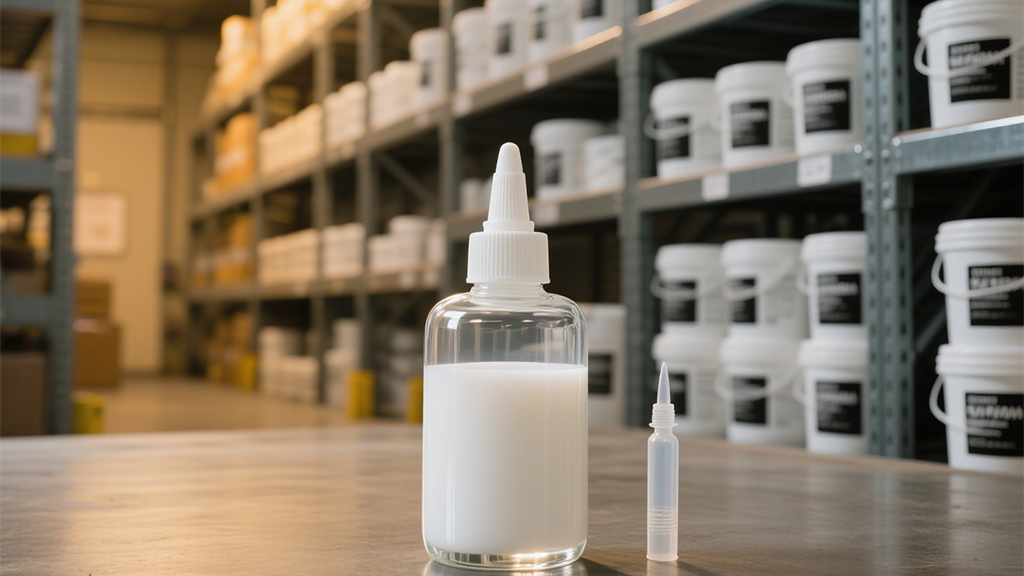The waterbased acrylic pressure sensitive adhesive production process involves a series of controlled steps, starting with emulsion polymerization of acrylic monomers, followed by formulation adjustments and quality testing, to produce a stable adhesive with tailored properties. It begins with the preparation of a monomer mixture, typically including flexible monomers like 2-ethylhexyl acrylate (2EHA) for low-temperature performance, rigid monomers such as methyl acrylate for adhesion to polar substrates, and functional monomers like acrylic acid to introduce crosslinking sites. This mixture is added to a reactor containing deionized water, surfactants (anionic or nonionic) to stabilize emulsion particles, and a polymerization initiator (e.g., ammonium persulfate). The reactor is heated to 70–90°C to initiate the polymerization reaction, which proceeds exothermically; temperature is carefully controlled to ensure uniform polymer chain growth, resulting in latex particles with a size range of 50–300 nm. After polymerization, the emulsion is cooled to around 40°C, and pH adjusters (e.g., ammonia or triethanolamine) are added to stabilize viscosity and prevent coagulation. Next, additives are incorporated: tackifiers (e.g., rosin esters, terpene resins) to enhance surface tack, crosslinkers (e.g., aziridines, epoxy compounds) to improve cohesion and heat resistance, biocides to prevent microbial growth during storage, and defoamers to reduce foam formation. The mixture is then filtered to remove any coagulum or impurities, ensuring a smooth, consistent product. Quality testing follows, including measurements of solids content (typically 40–60%), viscosity, pH, particle size distribution, and adhesive properties (tack, peel strength, shear resistance) to ensure compliance with specifications. The final product is packaged in drums, intermediate bulk containers (IBCs), or tank trucks for distribution. Advanced production facilities use fully automated control systems to monitor and adjust parameters in real time, ensuring batch-to-batch consistency, while integrated industrial chains (like that of E Plus Chemical Co., Ltd.) streamline the process from monomer synthesis to adhesive production, optimizing efficiency and reducing production costs. This process ensures the production of high-performance waterbased acrylic PSAs suitable for diverse applications, from packaging tapes to medical adhesives.
